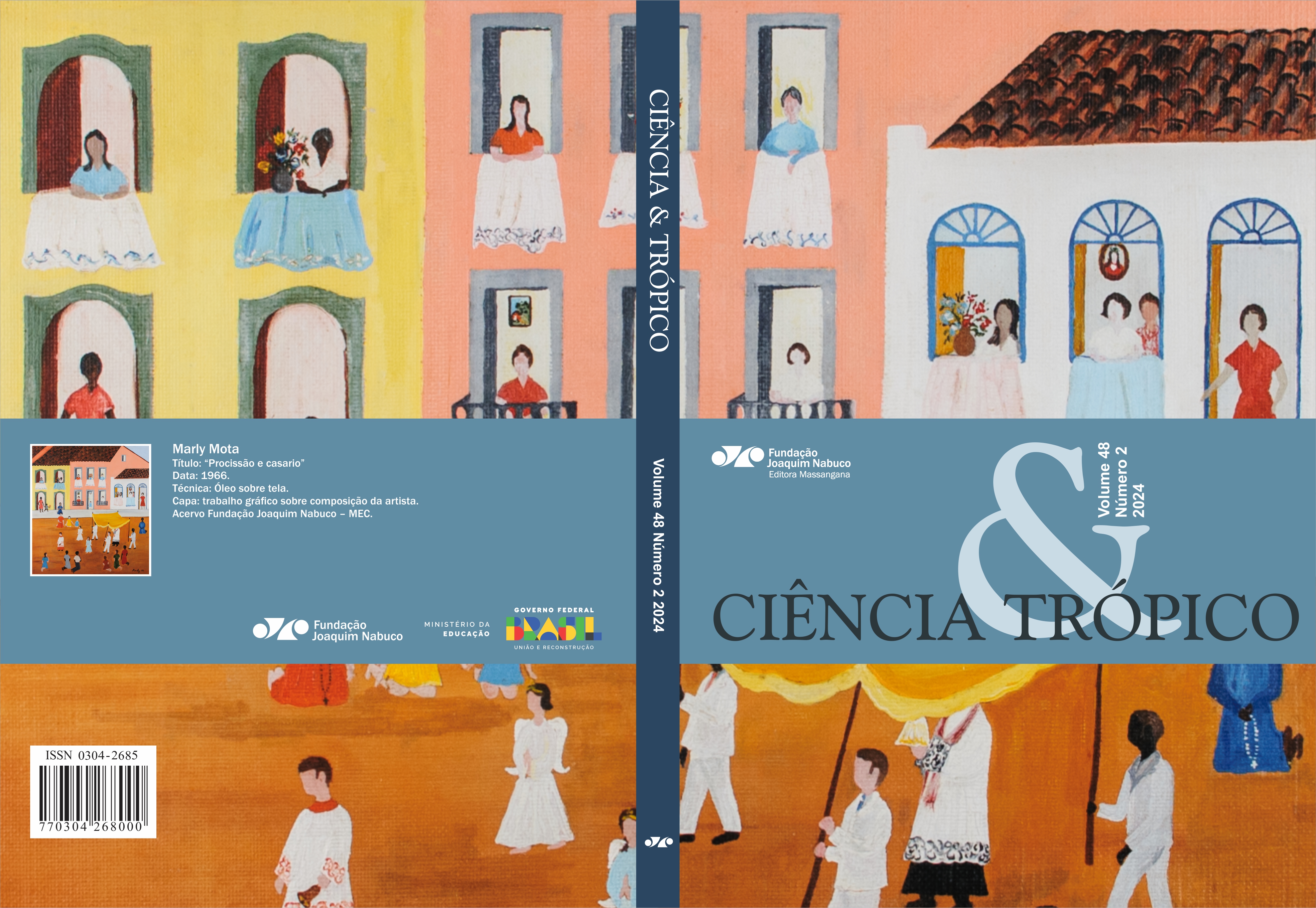Cultura popular
tessituras de resistência na manifestação dos Cocos de roda
DOI:
https://doi.org/10.33148/CETROPv48n2(2024)2284Resumo
No contexto dos estudos culturais, este artigo tem como objetivo discutir o conceito de Cultura Popular, no recorte da manifestação popular do Coco de Roda em Igarassu, dentro de perspectiva sociológica que compreende a cultura popular como resistente ao mercado e às estruturas de poder dominantes. No aporte teórico, a cultura é compreendida como um sistema de símbolos (Geertz, 1978) construído mediante o processo de socialização, ou seja, trata-se dos costumes, hábitos, códigos e crenças que são aprendidos pelos sujeitos a partir da sua inserção na sociedade (Laraia, 2020). Faz-se necessário compreender a cultura como um processo social e material, de modo que as questões relativas à economia não estão separadas da cultura, compondo uma totalidade indissociável. Nessa ótica, a acepção da cultura está intimamente conectada aos conflitos sociais, às questões políticas e todo o arcabouço das relações de poder presente nas sociedades (Canclini, 1983; Williams, 2011). E a cultura popular como referente às tradições, costumes, usos e memórias das classes populares (Bosi, 2000), em que também prepondera o conflito e se estabelece um limiar entre agência e estrutura. Nesse sentido, a cultura popular é compreendida como tenaz e com capacidade para resistir e construir alternativas contra-hegemônicas (Gramsci, 1995; Thompson, 1998). No que tange à metodologia, utilizamos o método qualitativo (Minayo, 2001), uma vez que intentamos uma investigação dos aspectos simbólicos relativos à vivência dessa manifestação. Como técnica de coleta de dados utilizou-se a estratégia da observação direta e participante, e entrevistas semiestruturadas com fazedores do Coco de Roda em Igarassu. Para a análise de dados, foi utilizada a perspectiva crítica de Guareschi (2014) e análise de conteúdo (Bardin, 1997). O resultado desta pesquisa sugeriu que essas manifestações populares vêm resistindo e contribuindo para a formação de agências participativas, solidárias e contra-hegemônicas. Portanto, o impacto social deste trabalho está em desvelar essas realidade, promover visibilidade para a temática e fortalecer a construção de outros trabalhos e políticas públicas que valorizem a cultura popular como parte do desenvolvimento de uma sociedade humana, integrada e diversa.
Palavras-chave: Cultura. Cultura Popular. Resistência.
Downloads
Downloads
Publicado
Como Citar
Edição
Seção
Licença
Copyright (c) 2024 Natasha Hevelyn Oliveira da Silva, João Morais de Sousa

Este trabalho está licenciado sob uma licença Creative Commons Attribution 4.0 International License.


